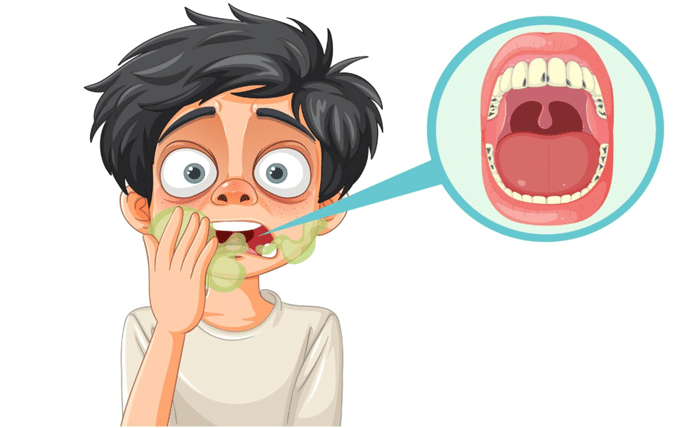
Your mouth is more than a gateway for food—it’s a window into your overall health. Oral health can reveal clues about your body and act as an early warning for potential issues. This post covers the link between oral health and wellness, warning signs to watch for, the connection to certain diseases, and tips for a healthy mouth and body. By the end, you’ll see why oral care is essential to self-care.
The Mouth-Body Connection
It might surprise you, but oral health and overall health are intricately connected. The mouth is home to millions of bacteria, most of which are harmless. However, poor oral hygiene can cause harmful bacteria to grow, leading to oral infections like cavities and gum disease. These issues, if unchecked, can escalate beyond your mouth and affect other parts of your body.
For instance, inflammation caused by gum disease has been linked to several chronic conditions, such as heart disease and diabetes. The mouth is often referred to as the “mirror” of the body, reflecting its internal state. By paying close attention to what is happening in your mouth, you may detect signs of other health problems before they become serious.
Now that you understand the mouth-body connection, let’s take a closer look at some common warning signs your mouth might reveal.
Signs Your Mouth May Be Warning You About
Your oral health can often signal what’s going on elsewhere in your body. Here are some key signs to watch for:
Bad Breath (Halitosis)
Persistent bad breath can be more than just a result of garlic-heavy meals. Chronic halitosis may indicate conditions like gum disease, oral infections, or even digestive system issues such as acid reflux. If brushing and flossing don’t resolve the issue, it might be time to consult your dentist.
Gum Inflammation
Swollen, red, or bleeding gums could signal gingivitis, a mild form of gum disease caused by plaque buildup. But gum inflammation isn’t always just a localized issue. Studies have shown a connection between gum disease and systemic health problems, like cardiovascular disease.
Dry Mouth
If your mouth frequently feels dry, it could be a side effect of certain medications, but it may also hint at larger issues, such as diabetes or autoimmune diseases like Sjögren’s syndrome. Saliva plays a crucial role in protecting your mouth from infections, so chronic dry mouth should never be ignored.
Mouth Sores
While most mouth sores, such as canker sores, go away on their own, recurring or unusually large sores might indicate more significant health issues. For example, oral ulcers can sometimes be a symptom of celiac disease or a sign of vitamin deficiencies.
By staying alert to these signs, you can address minor oral issues before they become significant health challenges.
The Connection Between Oral Health and Specific Diseases
Your mouth might not just be warning you about oral-specific issues. Poor oral health can also contribute to or exacerbate several systemic diseases. Here’s how they’re connected:
Cardiovascular Disease
Gum disease and heart disease share a connection through inflammation. Bacteria from gum infections can enter the bloodstream, leading to inflammation of the blood vessels, which increases the risk of heart attacks and strokes. Studies suggest that people with gum disease are almost twice as likely to have heart disease compared to those with healthy gums.
Diabetes
There’s a two-way relationship between gum disease and diabetes. High blood sugar levels can make it easier for gum infections to develop, while gum infections can make it harder to control blood sugar levels. Keeping your teeth and gums healthy is essential for managing diabetes.
Respiratory Infections
Believe it or not, poor oral health can impact your lungs. Bacteria from your mouth can be aspirated into the lungs, causing respiratory infections such as pneumonia. Maintaining good oral hygiene helps reduce the risk of these potentially serious conditions.
These connections underline the importance of adopting robust oral care practices to safeguard not only your smile but also your overall health.
Tips for Maintaining Optimal Oral Health
The best way to ensure a healthy body is to start with a healthy mouth. Here’s how to maintain excellent oral hygiene and reduce your risk of related health issues:
Regular Brushing and Flossing
Brushing twice a day and flossing daily is the foundation of good oral health. Use a fluoride toothpaste to strengthen enamel and protect against tooth decay. Don’t forget to replace your toothbrush every three to four months, or sooner if the bristles are fraying.
Balanced Diet
A healthy, balanced diet doesn’t just benefit your waistline; it’s great for your teeth too. Incorporate plenty of fruits, vegetables, and foods rich in calcium, like dairy products, almonds, and leafy greens. Try to limit sugary snacks and beverages, as they can contribute to tooth decay.
Regular Dental Check-ups
Visiting your dentist regularly is crucial for identifying potential issues before they escalate. Dentists can perform thorough cleanings, diagnose problems early, and even undertake tooth repair, like those offered in South Jordan, if cavities or damage are found. Preventive care ensures you stay one step ahead of oral and overall health concerns.
Conclusion
Your mouth provides important clues about your overall health, acting as both an early warning system and a potential source of health issues. Signs like bad breath, gum inflammation, and mouth sores can reveal critical insights. When you brush your teeth, you’re doing more than keeping fresh breath—you’re supporting your overall health. Make oral care a priority, and if it’s been a while, book a check-up today to stay on track.




